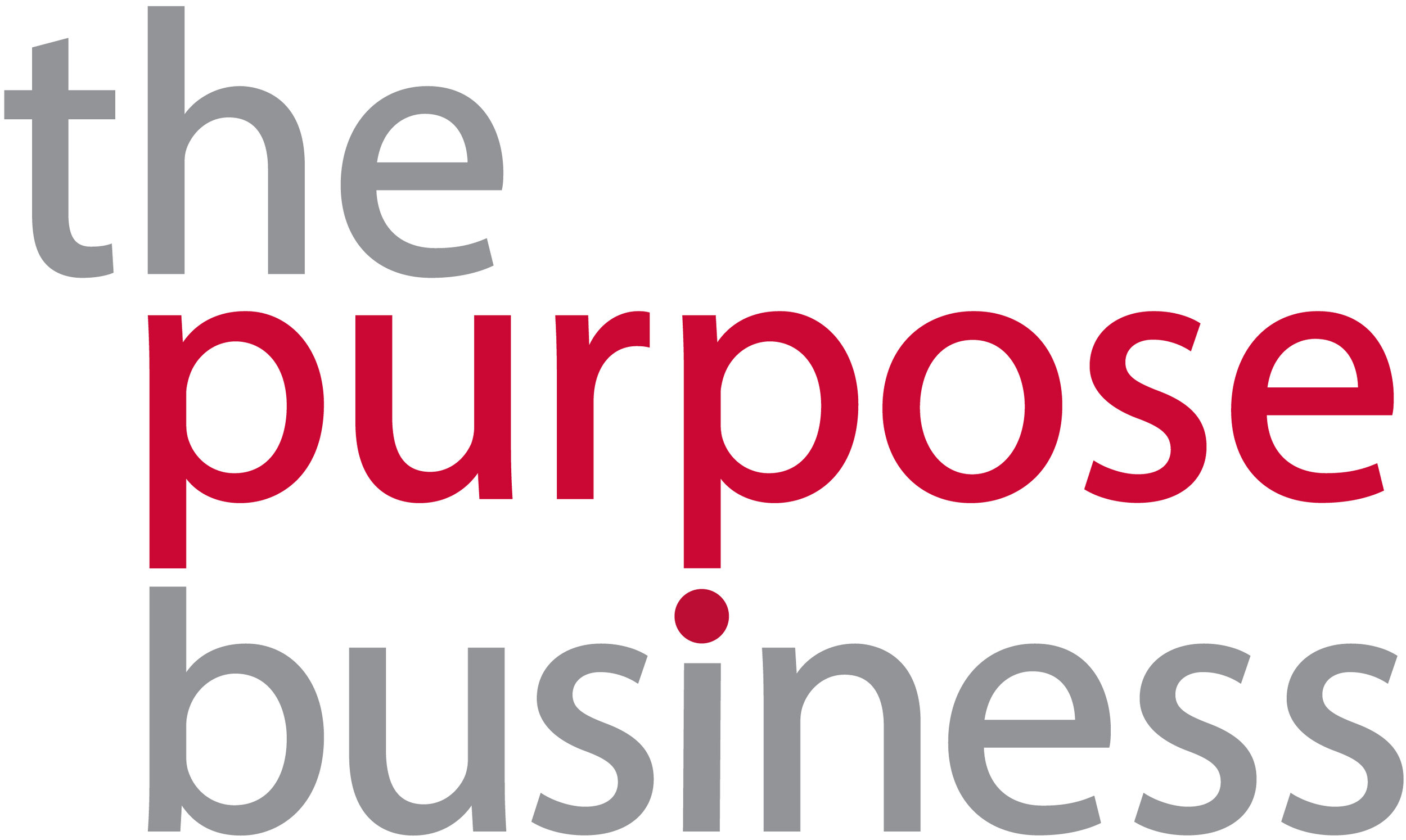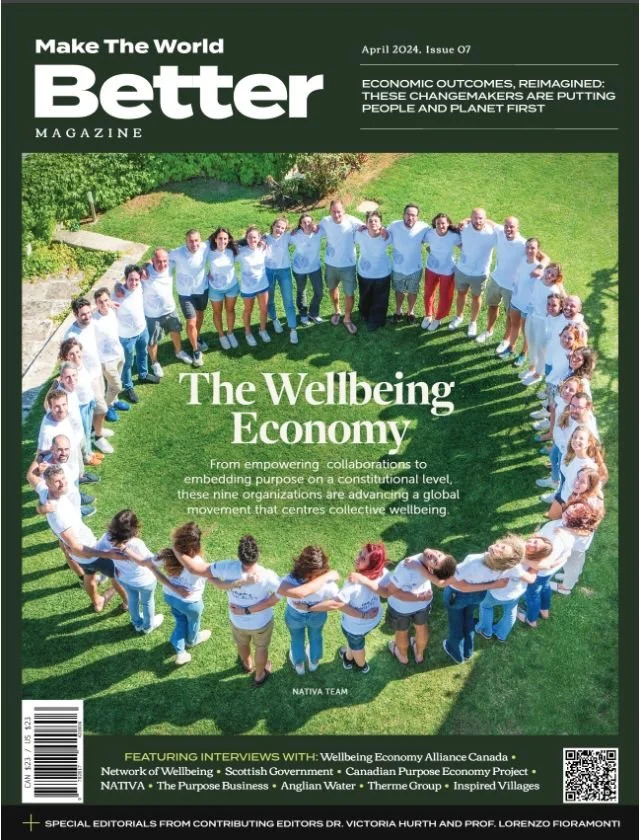Responsible leadership puts people at the centre of purpose
Purpose is always about people and responsible leaders should seek to embrace purpose better if they want to navigate the complex, integrated world of ESG and help their businesses succeed, says Sustainability Advisor Siân Wynn-Jones.
The roles and actions of business have never been more conspicuous. In a COVID- world, business responses have demonstrated how important employee, community and supply chain stakeholders really are. We've seen manufacturers making PPE and hand sanitisers instead of clothes, perfumes and beer, companies committing to retain staff and sadly stories of downsizing, layoffs and record unemployment. But whether we see companies as heroes, villains or somewhere in between, there is undoubtedly greater visibility around how businesses work together with people, communities, small/medium enterprises, governments and not-for-profits to solve problems that are bigger than any individual entity.
In fact, in a time when companies are enhancing employee mental and health benefits and cancelling Super Bowl ads to raise awareness of vaccinations, Milton Friedman’s much-quoted and long-debated quote “The social responsibility of business is to increase its profits,” seems increasingly irrelevant.
It's timely to redefine the purpose of business and to recognise its role as “solving problems profitably.” This definition encourages us to reconsider both the role of business at large and the unique purpose of each company. What is the problem that your company is trying to solve? Answering this question, in its shortest, purest form will help you identify and articulate your company’s purpose.
A successful purpose statement provides a unifying concept that the whole of your business will find relevant to their daily work. In addition, by adopting “solving problems profitably” as your guide, your purpose statement also demonstrates what your organisation cares about. This naturally moves the emphasis from your products and services to the impact that your business has. This shift in emphasis is reflected in purposeful communications. Businesses should view themselves not as the hero of the story, but as the conduit and the enabler. The heroes are people - your employees, your communities, your suppliers.
People at the heart of purpose in business
Crystallising and expressing why you exist as a business – your purpose - is the strongest foundation from which to activate every part of your business to achieve long-term success. The motivation, action and vision to create positive impact are all centred around people. People directly or indirectly benefit from the problem being solved, while human experience, ingenuity and connections facilitate the solution.
A purpose should manifest in everything a company does and says. There is no value in treating your purpose as a pithy marketing strapline or a poster on a wall. If your purpose is, for example, focused on creating healthier spaces [for people] or bringing joy [to people], this must equally apply to how your company interacts with employees and suppliers as well as the products, services and experiences you offer your customers.
For business leaders, the clarity and cohesion that purpose brings are powerful tools with which to build and adapt organisations in the post-pandemic world. Leadership will need to be prepared to meet the increasingly people-focused challenges that COVID-19 has brought centre-stage.
For business leaders, the clarity and cohesion that purpose brings are powerful tools with which to build and adapt organisations in the post-pandemic world.
Boardrooms and senior leaders must equip themselves for greater scrutiny on all social issues with diversity in the boardroom and throughout the workforce, executive-workforce compensation disparity, human rights in supply chains and employee mental wellbeing all making headlines. The impact of ESG issues on economic valuations is also increasingly evident. It took just two days for shares to crash 33% when an online fashion retailer was reported for unacceptable working conditions and underpayment of garment makers. The cost to the founders? £335million.
And should there be anyone who still sees people issues as ‘soft’ and somehow less worthy of boardroom attention, social issues are rising topics in the most common of directors’ conversations, namely risk. For the first time since 2017, The 2021 Global Risk Report from the World Economic Forum saw the return of social issues in the five most likely global risks. The report notes that new social disparities have developed - and existing ones widened - as a result of COVID-19. If this wasn’t alarming enough, the authors provide a stark warning should humankind fail to tackle and resolve the growing social issues: “Inaction on economic inequalities and societal divisiveness may further stall action on climate change - still an existential threat to humanity.”
Action for responsible leadership
There are a lot of demands and new information for today’s directors to be processing. However, reports indicate that the vast majority of leaders are not showing up with the necessary skills to address them. A recent survey revealed that just 7% of board members are ‘climate competent', meaning that most directors surveyed did not know enough about climate change to understand how it could affect their business. And yet ESG strategy and reporting is an explicit responsibility of the board in the Hong Kong and other stock exchanges.
Ironically, it may be that diversity, one of the key challenges experiencing inexcusably slow rates of change, particularly in Hong Kong, is likely to be part of the solution for increasing the depth and breadth of knowledge and experience needed on future-thinking boards.
Ironically, it may be that diversity, one of the key challenges experiencing inexcusably slow rates of change, is likely to be part of the solution for increasing the depth and breadth of knowledge and experience needed on future-thinking boards.
What does measuring success in social issues look like beyond the boardroom? A global workforce survey revealed that employees have clear expectations of their employers post COVID-19 with salary protection, improved health insurance and training at the top of the list. Other practical examples include the growing popularity of the WELL Building Standard, which focuses on enhancing health and well-being in our built environment. It has grown to be used in projects in more than 80 countries in just six years. Another example is the focus on human rights reporting and clarifying corporate disclosures to inform and eliminate the disconnect between commitments and processes to actual performance and results. We hope to see more announcements like Unilever’s actions to ensure that they pay their suppliers a living wage that accompanied their third Human Rights report.
When the pandemic arrived, businesses had no playbook to learn from as they tackled the unparalleled - and hopefully unrepeated - challenges it brought. Given the universal impact of COVID-19, it is perhaps unsurprising that the Trust Barometer 2021 reported that 86% of people expect CEOs to publicly speak out about societal challenges. There is an opportunity and expectation for companies to show they put people first.
The ‘S’ in ESG is increasingly in the spotlight and under scrutiny. As businesses look to the future, to adapt and regenerate, responsible leaders are focusing on purpose as an authentic foundation from which to plan, progress and communicate their ambitions and actions. There is growing recognition that purpose is about people and that understanding this relationship can help you both identify the problems that your business can and wants to solve and bring some of the solutions to help you do so. If you have not yet articulated your purpose, now is the time.




